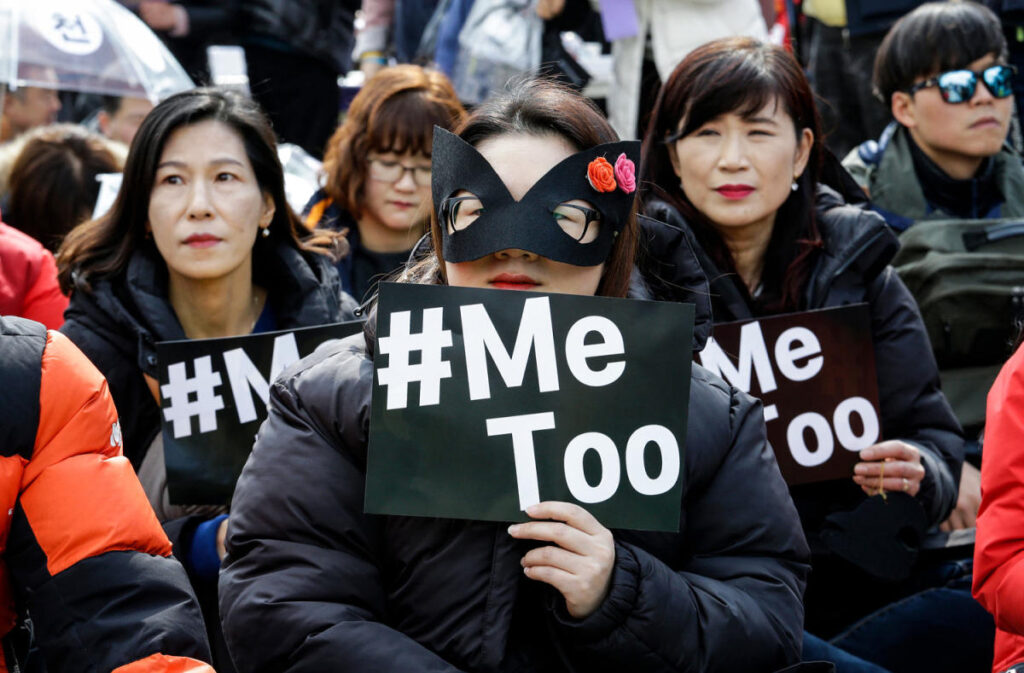The recent election of Donald Trump as President of the United States has sparked renewed interest in the “4B” movement, a fringe feminist initiative originating from South Korea. The 4B movement, which stands for “no dating, no sex, no children, and no marriage with men,” aims to protest against misogyny and gender discrimination. In the wake of Trump’s election, numerous American women expressed their frustrations online by adopting this trend, utilizing platforms like TikTok to showcase their commitment to the 4B principles. The movement garnered significant attention, with over 200,000 search inquiries about it emerging on Google shortly after the election, making it a prominent topic of discussion.
The inception of the 4B movement dates back to 2018, following the resurgence of the #MeToo movement in South Korea. According to Meera Choi, a Yale sociology Ph.D. candidate, women began to reassess their relationships with men and the societal structures that favor them. They stopped engaging in heterosexual relationships as a form of protest against perceived failures of the state and male counterparts regarding women’s rights and protections. This movement is essentially a reaction to entrenched gender-based disparities that have manifested into a broader “gender war” in South Korea, whereby female activists rally against policies that curtail their rights.
The influence of gender issues in the recent U.S. elections revealed stark divides among female voters. Despite some expectations that female concerns, including reproductive rights, would lead to significant voter turnout against Trump, the results indicated a surprising level of support for him among women. While Trump garnered 45% of female votes, it highlighted crucial demographic differences, particularly among college-educated versus non-educated white women. This outcome contributed to a growing sense of disillusionment among many American women, who now find themselves resorting to forms of activism reminiscent of the 4B movement as a coping mechanism against the political climate they perceive as hostile to their rights.
In South Korea, the backlash against feminism has been palpable and has resulted in government officials, like President Yoon Suk Yeol, placing blame on feminist ideologies for issues such as the country’s declining birth rates. His administration’s actions, including increasing penalties for false accusations of sexual crimes and denying systemic gender discrimination, have amplified tensions. This political environment has given rise to a renewed commitment among South Korean feminists to advocate for their rights, with the 4B movement providing a framework for resistance against policies perceived to be oppressive or harmful to women.
As the 4B movement gains traction internationally, young women from various backgrounds are finding resonance with its principles through social media. The movement, while still considered niche, is more visible than ever. Aleisa Mora, for example, went viral after posting her experiences with the 4B ideology, highlighting the need for such movements in the wake of continued gender-based oppression. The backlash to her posts, particularly from far-right groups, only reinforced her commitment to the 4B philosophy, as she declared the necessity of women independently defining their relationships with men in a society that often undermines their rights.
Despite the movement’s growing recognition, it is not without its criticisms. Scholars like Choi emphasize that 4B can be regarded as exclusionary, only reflecting the experiences of certain women while sidelining others, including transgender women and those who are mothers. Furthermore, cultural and societal contexts vary significantly between the U.S. and South Korea, which might lead to different interpretations and implementations of the 4B ideology. Nevertheless, supporters like Marykate Cecilia see the potential for the movement to effect real change, particularly as societal issues like population growth and reproductive rights garner broader discussions and actions. The 4B movement, while imperfect, reflects a vital and emerging space for women’s solidarity and resistance against patriarchal structures globally.

